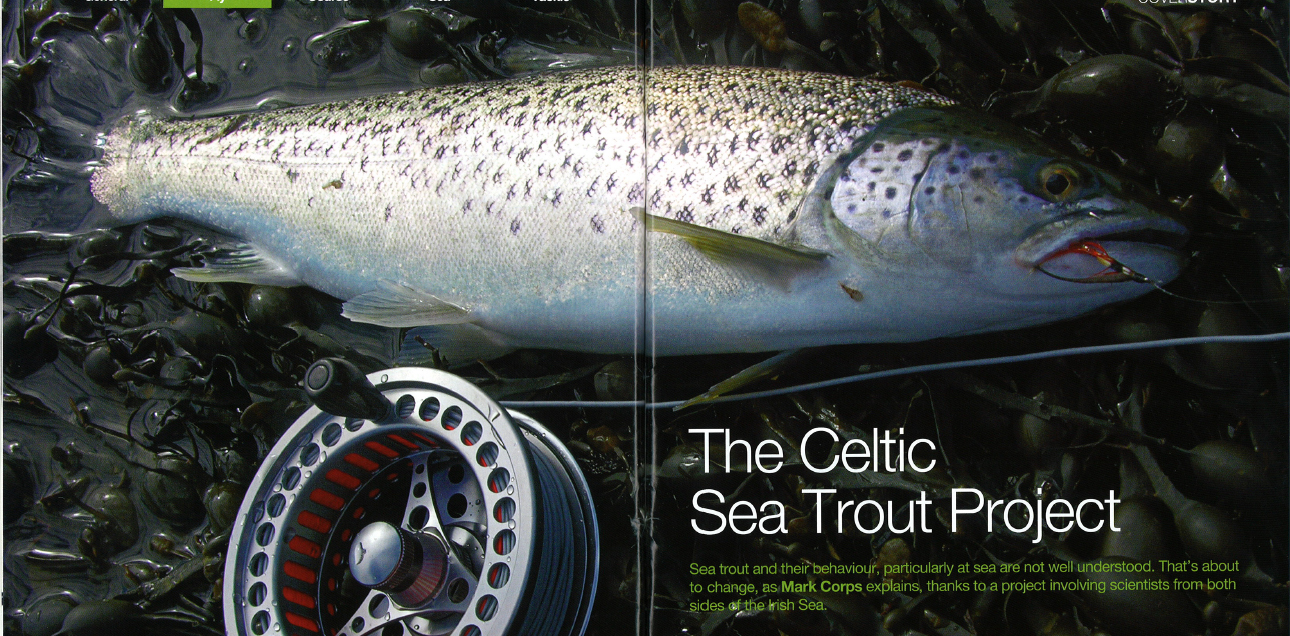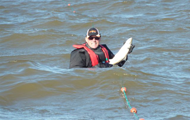The Celtic Sea Trout Programme aims are:
- To understand and describe sea trout stocks in the Irish Sea in order to enhance their fisheries, and strengthen their contributions to quality of life, to rural economies and to national biodiversity.
- To explore the use of sea trout life history variation as a tool to detect and understand the effects of climate change.

The project content
It is a diverse project with 6 core tasks. As lead agency, Bangor University provides overall management and coordination of the programme delivery and finances. In summary, the field sampling side involves collection of sea trout samples (e.g. scales) from 100 rivers (of which 20 have been targeted for detailed sampling), estuaries, and coastal waters. The samples will be processed to describe stock structures and distributions (using micro-chemistry and genetics), life histories, growth and survival (from scale analysis) and feeding. Various modelling approaches will be used to pull this information together to show the interactions between stocks, fisheries and environment at sea and in freshwater, and thus to explore management options.
Video: Sea Trout Sampling for the Celtic Sea Trout Project
1. Fishery inventory and description
Graeme Harris
To describe the location, size and composition of sea trout fisheries around the Irish seas, including the socio-economic values, trends in performance and development potential.
2. Sampling
Inland Fisheries Ireland, Willie Roche
To collect biological material in order to establish a baseline of the genetic and micro-chemical data that will enable the identification of rivers of origin of sea trout captured in and to develop a map of stock structuring around the Irish Sea. To provide scale samples, gut contents and other biological data to support the study of marine ecology, feeding and life history variation of sea trout around the Irish Sea. To collect scales samples through anglers from priority rivers. Find out more about the sampling programme here.
Video: Freshwater Sampling on the Mennock for the Celtic Sea Trout Project
3. Stock discrimination and structuring (Genetics)
– University College Cork, Phil Mc Ginnity
– Queens University Belfast, Paulo Prodhol
– Bangor University, Martin Taylor, Gary Carvalho and Niklas Tysklind
To enhance and support the sustainable use, protection and management of sea trout resources through the development and application of an optimum, practical, accurate and cost-effective genetic solution for determining the region or river of origin of sea trout captured in the Irish Sea, both from historical and contemporary biological material, building on existing genetic databases and resources from the participating groups
4. Movements and distribution (Microchemistry)
Bangor University, Ian Mc Carthy
To enhance and support the sustainable use, protection and management of sea trout resources through the development and application of an optimum, practical, accurate and cost-effective microchemical methods for determining the region or river of origin and history of movements of sea trout captured in the Irish Sea from historical and contemporary scale and otolith samples.
5. Freshwater production capacity
Environment Agency, Ben Wilson
To describe the freshwater production capacity of sea trout in rivers and evaluate the quantity and quality of principle sea trout spawning and rearing habitats.
6. Marine ecology and life history variation (modelling for management)
Nigel Milner
To enhance and support the sustainable use, protection and management of sea trout resources through the description of the utilised marine environments, marine ecology and the development of a process-based, spatially structured, practical model of life history variation and responses to environmental pressures in the Celtic seas, using historical and contemporary biological material, and building on existing knowledge of ecological processes in sea trout.
Collaborating or supporting organisations
CEFAS, Association of Rivers Trusts, Solway Sea Trout Group, Clwyd and Conwy Fisheries Trust, Carmarthenshire rivers Trust, Teifi Rivers Trust, Slaney Rivers Trust, Loughs Agency, AFBI, University College Cork, Queens University Belfast, Marine Institute, Countryside Council for Wales, Department for Culture Arts and Leisure (NI).
[table id=14 /]
